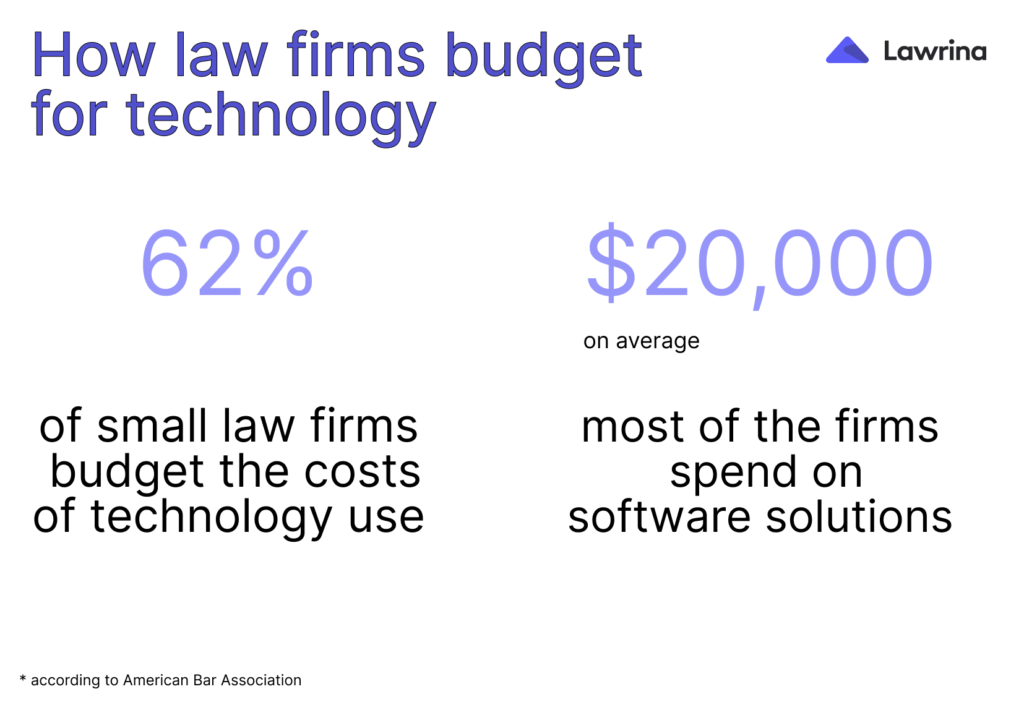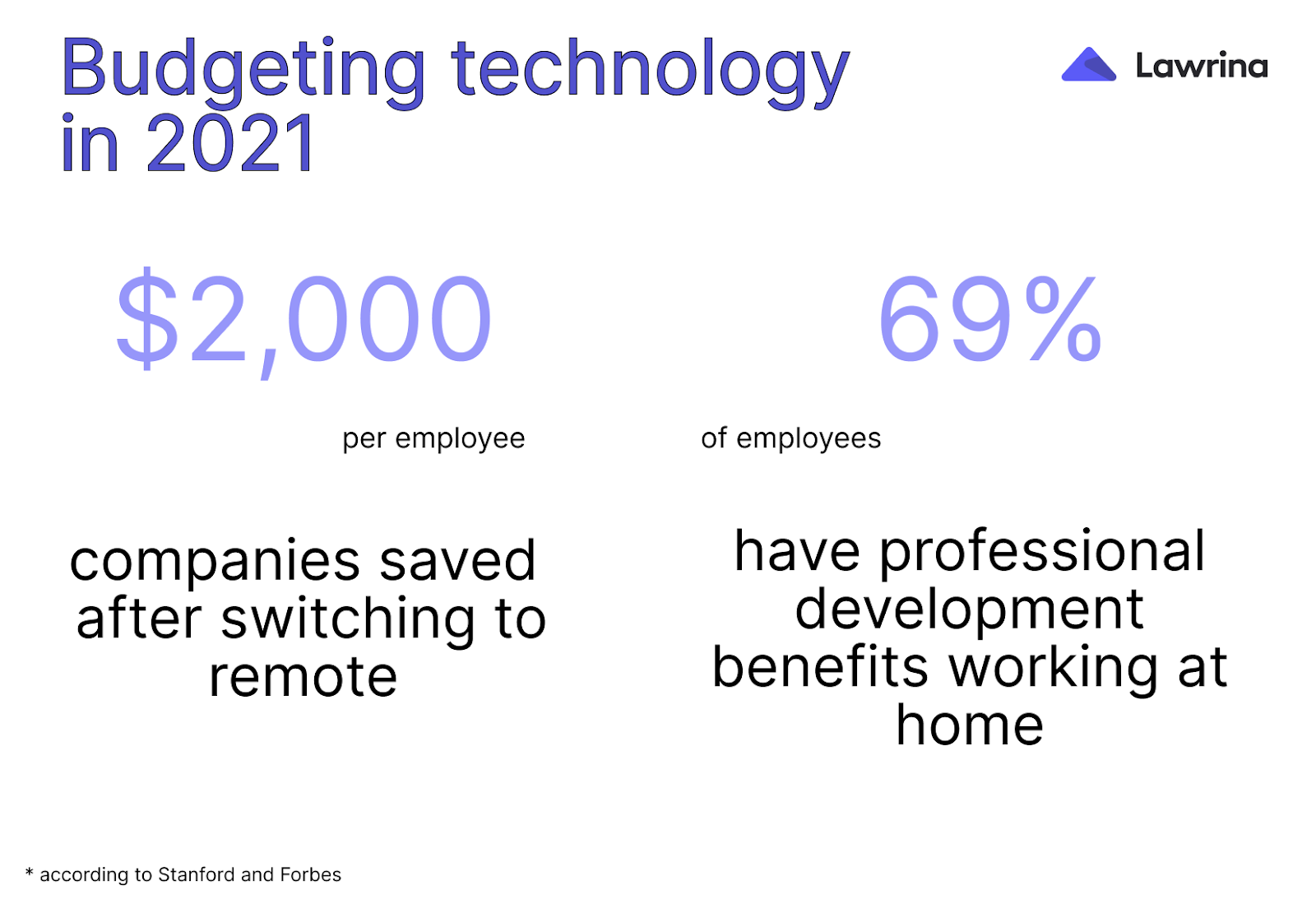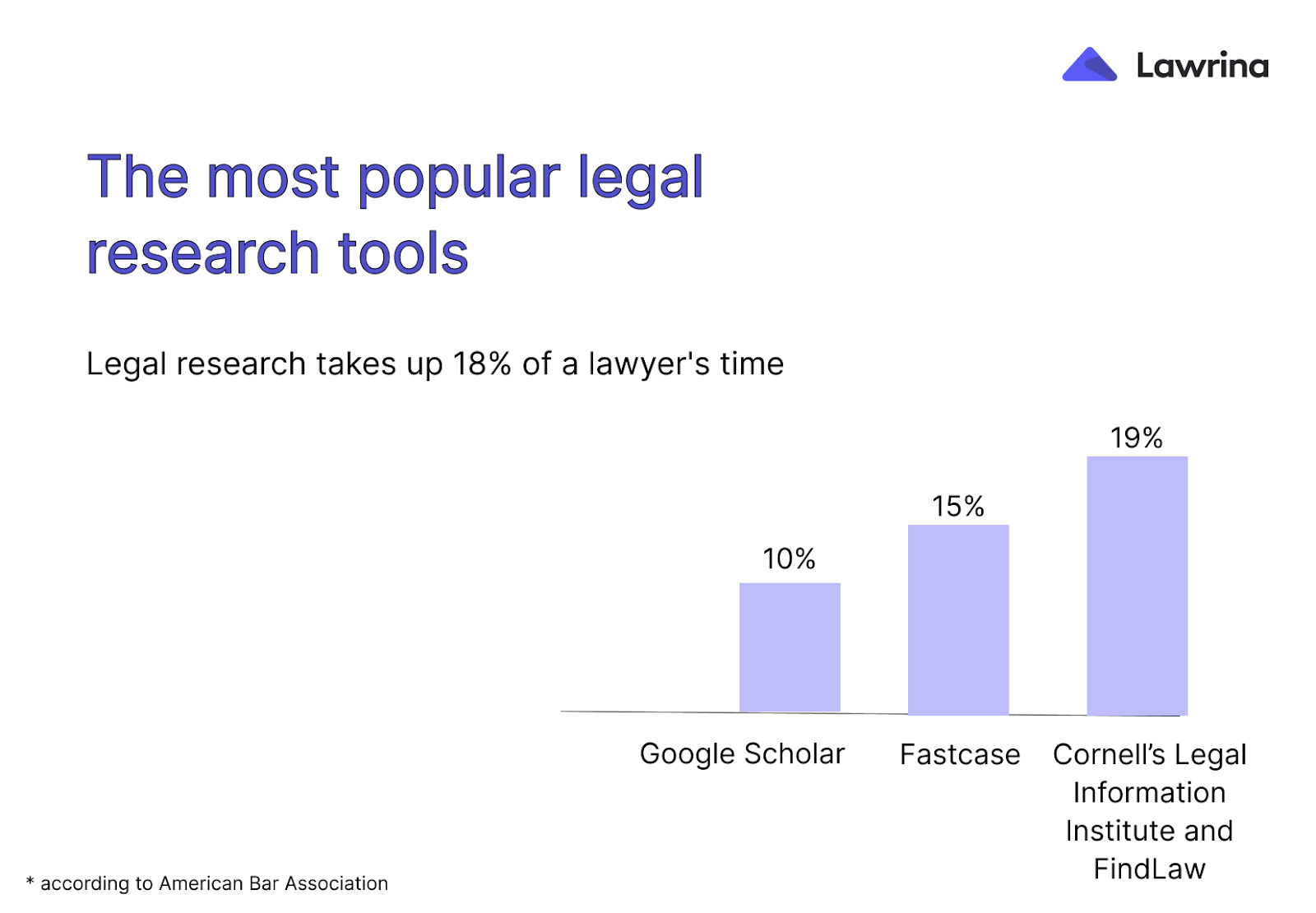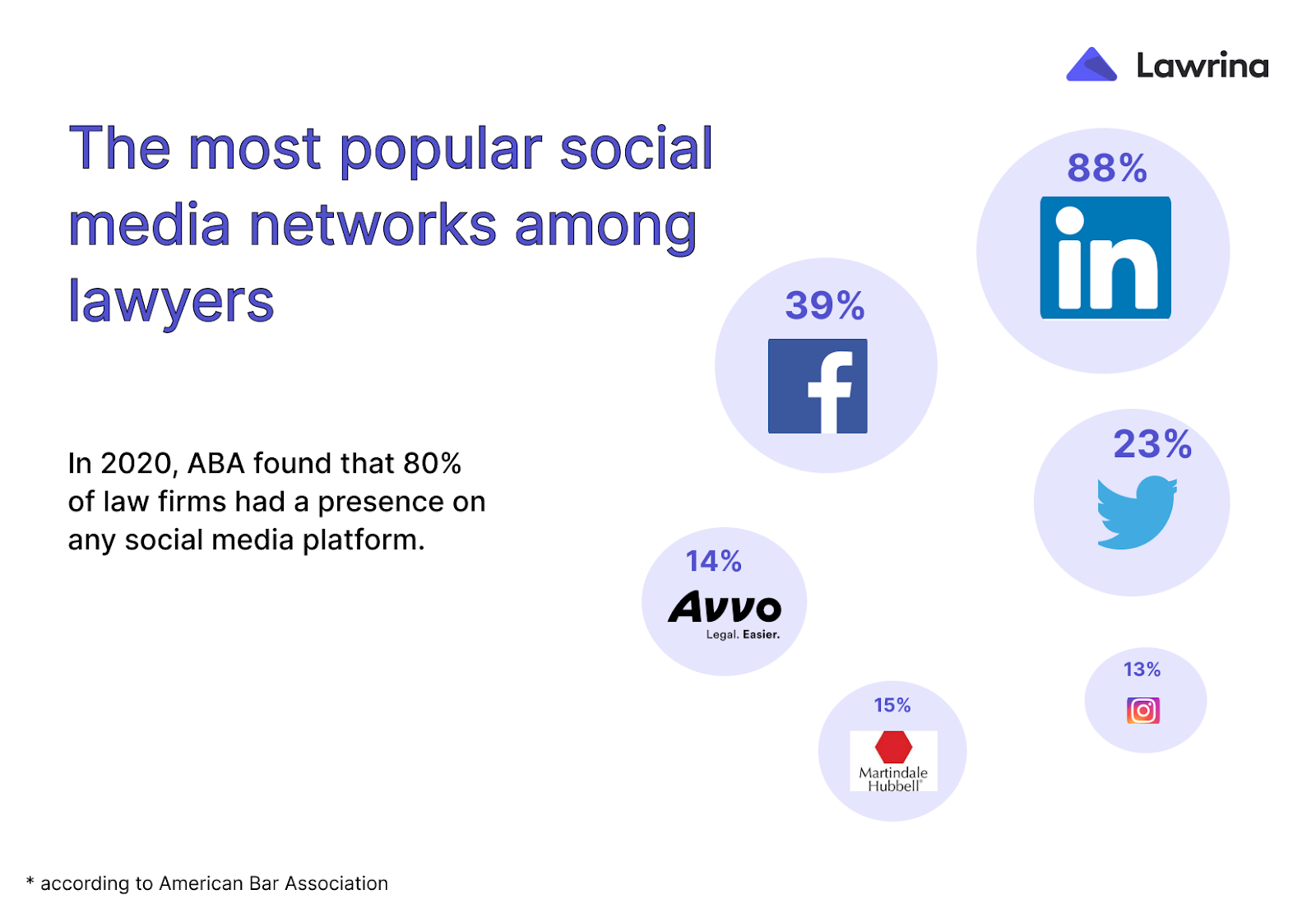Top 8 Legal Tech Trends to Watch in 2021/22
Technology projects innovation to all of the industries and it is hard to resist. Hard and, also, unnecessary. You will hardly find a company that didn’t benefit from engaging technology into its daily operations. In law, tech touches almost every aspect of the legal processes lawyers undertake day after day. It makes contract drafting easier and more bearable because of the careful and attentive eye of the computer, makes time-management the simplest thing, and measures work hours without effort.
Since legal practitioners could see how much technology helps them to execute their work, they can look forward to what’s next. Already, the forecast for new technology trends promises some impressive changes in the second part of 2021 and into 2022.
Trend # 1: Lawyers will use smart contracts on blockchain
I personally think that one major tech trend that will affect the legal industry as a whole is blockchain. As evidenced in the financial world, blockchain technology and smart contracts have the potential to make legal frameworks even more robust. By providing a hacker-proof network to exchange information, it’s hard to ignore what a blockchain will bring to the table. Aside from network security, smart contracts over a blockchain can help speed up legal processes by automating and executing legal contracts without human intervention or manipulation.
"A record of every single action taken on a contract is publicly available on the blockchain forever, making it an incorruptible way to fulfill legal contracts. Not only that, but the information is decentralized, meaning that it’s split up into little parts and scattered across the entire blockchain [but connected and time-stamped along the chain], so it’s impossible to delete or be tampered with in any way. Ultimately, I believe the integration of blockchain is one legal tech trend to watch from 2022 onwards."
Branka Vuleta, General Manager & Founder of LegalJobs.io
Smart contracts are written code programs that automate contract preparation. They are stored on a blockchain, at the moment used most often with virtual currency, and written in a way that can start document execution when the program sees the correct circumstances. Technology is one of the main trends in the legal profession and it provides many convenient tools for lawyers. Smart contracts are just one of them.
Trend # 2: The costs that law firms budget for technology will grow
"The most significant trend in 2022 for legal technology will be substantial increases in spending on legal technology. Covid-19 forced many law firms to adopt new technology to maintain the same levels of production pre-Covid. They have likely reached a point where they will not return to how they were previously working and will continue to increase spending on legal technology to improve their production and efficiency in 2022."
William Privette, Personal Injury Attorney, Herrman and Herrman PLLC
According to an American Bar Association survey, 62% of small law firms budget costs for technology use. Every year, most firms spend on average $20,000 for software.

In the future, this number will inevitably grow. Gartner predicts that by the end of 2025 the costs that companies put into their budgets for technology will grow. While some time ago technology adoption wasn’t a priority for law firms to succeed, today the right use of tech tools makes them more competitive on the market.
Trend #3: Effective remote work – one of the best legal tech trends in 2021/2022
Recent events connected to COVID-19 taught us the importance of establishing processes that will allow firms to work remotely without damaging the workflow. The pandemic conditions of the past two years greatly disturbed any industry. While some were already working in a hybrid environment, law was one of those that found it the hardest to get used to the “new normal” conditions.
"I would expect to see increased adoption of remote meetings, etc. being born out of COVID. There was a fair bit of it pre-COVID, but I think the pandemic really forced a lot of people throughout the market who were tech-hesitant to get comfortable with videoconferencing."
Ryan Reiffert, Business Attorney of Law Offices of Ryan Reiffert, PLLC
One of the facts known during the pandemic is that companies had to move their businesses to hybrid work conditions, and the results of this transition were very promising as shown in the following statistics:
- Scientists at Stanford University calculated that companies save a minimum $2,000 per employee who moved their work from the office to home.
- Beyond financial benefits, 63 percent of employees have professional development benefits working at home, according to a Forbes survey.

Trend #4: Remote depositions and hearings will likely continue post-COVID
For sure, we all miss interpersonal communication. Being with a person in a meeting in Zoom and in the legal proceedings in the office are drastically different things. However, adjusting to the “new normal” of work is a natural thing to do. In the law, remote hearings are becoming more popular. In 2022, the legal practitioners will work on improving the way these virtual courts work and even will meet clients through video conferencing or digital marketing.
Trend # 5: A bigger number of companies will use legal tech tools for work automation
There is hardly any person who doesn’t use at least one application with their everyday tasks. The tools are among legal market tech trends too. They are created to make the everyday tasks easier and with the right choice of the applications many processes can proceed without much effort.
1. Document automation
Law firms now use document automation in their work. There are many software products specifically designed for work with documents like Google Docs and Law Cloud. Usually, the law firms prefer document automation tools as a starting point of their technology adoption cycle.
2. Contract management systems
Contract drafting is a big part of the lawyers’ life. This task usually takes a lot of time and requires absolute concentration. While it is unlikely to be done without any human attention, some applications could make the process of contract preparation much more efficient. No matter what this is, smart contracts or contract drafting software, it is unbelievably useful for lawyers, attorneys, and paralegals. Most of the applications for contract management are programmed to notice the irregularities in the documents and highlight them.
"The legal tech trend I predict for 2021/2022 is that there will be more automated applications online and on portable devices that provide legal services to consumers. Before technology, boilerplate fill-in-the-blank legal forms covering a variety of matters, like leases or wills, could be purchased at an office supply store. Today, there are hundreds of online sites that allow people to create their own contracts. In terms of mobile apps, there are apps that enable creating, signing, and sending of legally binding agreements, as well as ones that use artificial intelligence to review contracts.
There are dangers to using automated applications to create binding contracts and wills. States have specific and unique laws and requirements. If the form omits requirements specific to your state, your document could be deemed invalid and unenforceable by a court. For example, if your state requires three witnesses to a will, but the automated form only gives options for two witnesses, the will could be contested."
Lauren Blair, Lawyer & Owner of Lauren Blair Consulting
3. Legal research
According to the stats in the same ABA survey, legal research takes up 18% of a lawyer’s time. For doing it, some legal practitioners trust first search engines like Google, and some go straight to the paid resources. Most of the lawyers, though, use the online tools to make their research easier and faster. The most popular resources mentioned by them are Cornell’s Legal Information Institute and FindLaw (each 19%), Fastcase (15%) and Google Scholar (10%). It is one of the prominent trends in the legal industry, judging by the numbers.

Trend # 6: More law firms will move their data to the cloud
Also an important legal technology trend is investing in cloud-based services. In the future, 71% of legal departments and 75% of law firms will have an increased focus on the use of data clouds, according to the same ABA survey. Being a lawyer is dealing with a lot of information, operating many documents and analysing a big scope of data. If there is a way to store all this information and collaborate with colleagues in one place, it is only logical that lawyers will want to use this cloud-based service.
"Cloud services allow cases to move along more efficiently and also promote collaboration. The relationship between a paralegal and attorney requires a lot of back and forth, well, the cloud allows both to work on a file simultaneously. Also allows annotations and corrections to be saved while you draft a document. These are just some of the examples."
Alicia Pierre, Google Cloud Certified Expert of Legally Techie
The biggest concerns that law firms have regarding the migration to the cloud is the security of their information. This is why 94% of lawyers think carefully and analyse the reputation of the software before deciding. However, the ones that use the cloud services note that cloud services still couldn’t provide a greater security to their data than they can provide on their own. They decide to put trust in people, not in tech.
Trend # 7: Law firms will invest more in cybersecurity
With the increased use of computer software, law firms started to be more worried about the security of the data. After all, law firms have a lot of confidential and personal information about their clients that cannot be disclosed. In the same ABA survey, 29% of lawyers reported any security breach their firms experienced, for example, lost or stolen computer or smartphone, hack, break-in, or exploited website. This number increased from last year, which is why cybersecurity is one of the most important legal tech trends because it influences firm reputation and its relationship with clients. And, also, income. Even though most of the security breach events didn’t hurt the firm’s performance, 37% of the respondents admitted to losing billions due to the security breaches.
In the survey, lawyers talked about the tools they use to protect themselves from security breaches. Sadly, more than half of the survey participants do not take cybersecurity seriously and neglect their data protection. The exact methods the law firms use:
- file encryption (43%)
- email encryption (39%)
- whole/full disk encryption (26%)
- two-factor authentication (39%)
- intrusion prevention (29%)
- intrusion detection (29%)
- remote device management and wiping (28%)
- device recovery (27%)
- web filtering (26%)
- employee monitoring (23%)
- biometric login (12%).
"More cybersecurity threats have emerged as law firms and other businesses adopt remote working practices. To secure legal data from online attacks or unauthorized access, stronger cybersecurity will be a primary focus in 2022. Using cloud-based legal case management software with the strictest security procedures is the best method to defend against data breaches. Data security and data privacy will continue to be important issues for legal organizations on a national and international level."
John Cortez, Founder & COO of Revnue
In 2022, law firms and solo legal practitioners will pay more attention to cybersecurity. Hopefully, in the next reports we will see that more than half of the lawyers use some kind of method to protect their data.
Trend # 8: More lawyers will appear on social media and write blogs
Another legal technology trend is the use of social media and blogging in general. That is an inevitable trend because social media become even more popular and create not only a connection with audiences but also a strong reputation for lawyers and understanding of their professionalism. In 2020, the ABA found that 80 percent of law firms had a presence on some social media platform. The most popular networks they use are:
- LinkedIn (88%)
- Facebook (39%)
- Twitter (23%)
- Martindale (15%)
- Avvo (14%)
- Instagram (13%)
"I use social media a bit for brand awareness efforts in my practice – posting educational articles, educational videos, inspirational quotes, that kind of thing – and I see a lot of other lawyers and law firms do the same or similar. I would expect to see that expand a bit and have more firms take advantage of the brand awareness you can get from a decent social media presence."
Ryan Reiffert, Business Attorney of Law Offices of Ryan Reiffert, PLLC

Some of the lawyers (29%) admit that their presence on social media helped them to obtain clients because potential clients reached out to their firms after studying their profiles. More lawyers said that the clients reach out to them because of their blogging activities and the virtual format of communication.
Even though blogs are not as popular as social media among law firms, they play an active role in the self-presentation among solo practitioners. For example, many lawyers write about their topics of interest, present their knowledge and skills, and create more engagement for their work in the Lawrina blog.
Conclusions
Most of the trends in the legal technology industry started with the rapid change the pandemic brought upon the world. The necessity to organize legal processes in a way that will work virtually was a challenge. The legal professionals may have been reluctant to accept technology in their lives, but that’s changing. Technology was exactly what helped them to get through the hard times with as little damage as possible.
Related links
Main menu






